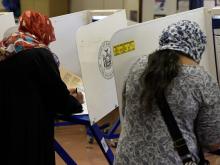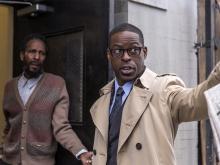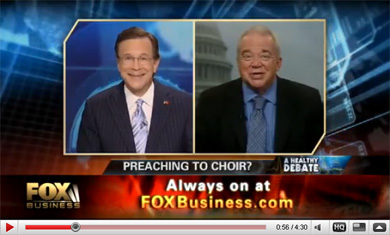fox

“The picture is mixed,” said Besheer Mohamed, a senior researcher at the Pew Research Center who specializes in religion.
“On the one hand, its seems clear that Muslims are a pretty small part of the population. On the other hand, they are concentrated in some states and metro areas that might increase their voting powers in those specific areas.”

This Is Us is tough to describe because the last few minutes of the first episode contain a major game-changing surprise. But without giving too much away: Several characters from completely different walks of life are turning 36. Each of them feels stuck and knows it’s time for a change: An overweight woman determines to lose the weight, and a sitcom actor quits his series. As you might expect, their paths begin to cross in unexpected ways, and we learn just how connected these strangers really are.
Religious themes:
Sure, the whole “show-how-these-strangers-are-connected-even-if-they-don’t-realize-it” device isn’t new — but the show succeeds anyway. In today’s fast-paced, competitive, fragmented world, it’s always a good reminder that we’re all connected to each other, even, and especially when, we aren’t aware of it.
AS THIS IS written, the Federal Communications Commission is, again, preparing to rule on a revision of its media ownership rules that could, again, allow the few remaining mass media conglomerates to own even more of what are currently competing local news outlets. For one thing, the proposed revision would allow Rupert Murdoch's News Corporation to have its Los Angeles and Chicago TV stations and eat the L.A. Times and Chicago Tribune, too.
Five years ago, the Bush administration's FCC commissioners tried this move, but it was routed in a decision by a federal appeals court. But, just in time to quash any illusions that a second Obama administration might be less friendly to corporate power, Julius Genachowski, the Obama-appointed FCC chair, tried, at the end of 2012, to quietly slip in this new set of Murdoch-friendly ownership rules. The only reason it may not have happened already is because he raised the issue at the same time that an FCC report on minority media ownership arrived showing the share of outlets owned by people of color to be only 2.2 percent for commercial full-power television and 6.2 percent for commercial AM radio. This, needless to say, raises questions about the wisdom of further media consolidation.
Over the decades, this column has spilled a lot of ink on the subjects of the FCC, media policy, and, especially, media ownership. I haven't obsessed over these issues because of any love for the details of broadband allocation and other regulatory minutiae. In fact, I struggle to understand some of those matters just well enough to try and explain why they are important. But they are important, mostly because deregulated and monopolistic mass media impinge upon our ability to effectively exercise our God-given free will and participate rationally in the process of self-government.
So I'm a fan of So You Think You Can Dance. I enjoy watching dance and I used to dance, so I like the show even though it is a mostly scripted reality TV program.
